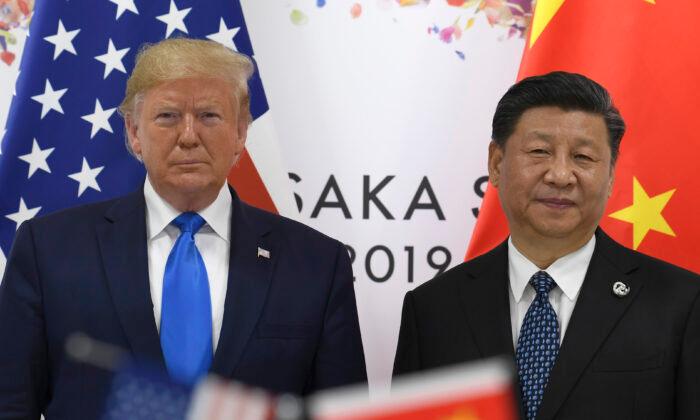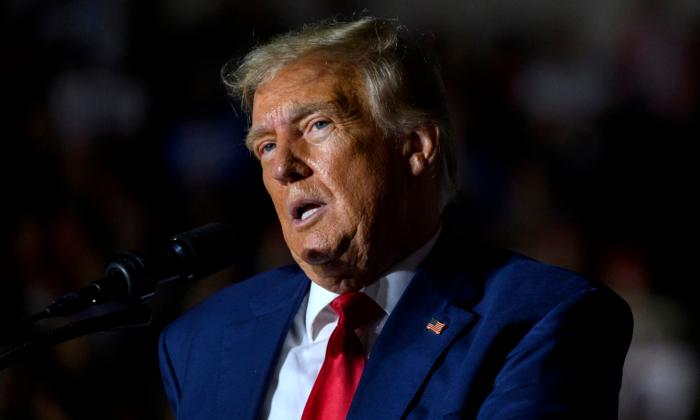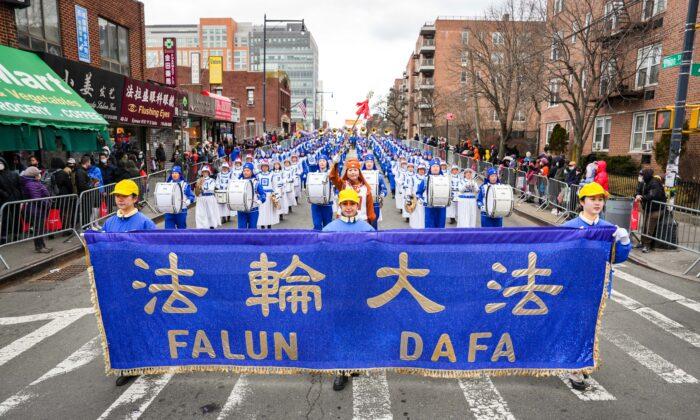The Chinese regime’s mishandling and disinformation surrounding the pandemic has re-escalated US-China tensions, while beaming a spotlight on the Trump administration’s ongoing campaign to counter Beijing in areas from trade to national security.
The pandemic’s disruption of global supply chains has hastened an administration initiative to reduce manufacturing dependence on China. Meanwhile, a raft of other measures across U.S. government agencies combating security and other threats posed by the regime are also coming to the fore.
“This pandemic has highlighted just how correct, I think, President Trump has been since he began campaigning for the office in 2015 about the need to protect our borders, to bring crucial manufacturing home, and … importantly for America, to have reciprocal relationships around the world, to have an even playing field,” Ortagus said.
“And that’s what we’re calling for in our relationship with China—whether it’s in trade, or whether it’s working on this pandemic, or national security issues.”
“There are many things we could do,” Trump told Fox Business on May 14. “We could cut off the whole relationship.”
Hardening Stance
Washington has in recent years taken a tough line on China issues. But the pandemic has “supercharged” efforts in certain areas, Walter Lohman, director of the Asian Studies Center at Washington-based think tank Heritage Foundation, told The Epoch Times.On the trade front, Trump last week said he was “very torn” about the phase-one U.S.-China trade deal reached in January. He told Fox News that the pandemic has changed his views on the matter since the deal’s signing, adding that he was “having a very hard time with China.”
The Board in 2017 decided to shift its investment strategy for its $40 billion international fund to track an index that includes China-based stocks of companies under scrutiny in Washington. Among the companies are Hangzhou Hikvision Digital Technology, which was placed on a U.S. trade blacklist last year because the company’s technology was being used for the repression of Uyghur Muslims in China’s western Xinjiang region, as well as aircraft and avionics company Aviation Industry Corporation of China, which supplies weapons to China’s military.
In a letter from Kudlow and National Security Adviser Robert O'Brien to Labor Secretary Eugene Scalia on Monday expressing opposition to the investment move, the officials cited the “significant and unnecessary economic risk” of investing in Chinese companies, noting “the possibility of future sanctions will result from the culpable actions of the Chinese government” with respect to the spread of the virus.
The move was due to take effect later this year, but the FRTIB announced on May 13 it would indefinitely delay those plans.
The administration’s pressure in this instance signaled a “warning shot” to the regime, Stephen Moore, an economist and former Trump campaign adviser, told NTD, an affiliate of The Epoch Times.
“There’s a real sense that the United States has to be more punitive with China because of what has happened with COVID … that has been so devastating to the United States,” Moore said.
Trump also indicated on May 14 that his administration is looking “very strongly” at requiring Chinese companies listed on U.S. stock exchanges to comply with U.S. accounting rules. Currently, the regime blocks U.S. regulators from examining the audit papers of Chinese companies, saying they contain “state secrets.”
He noted, however, there would be drawbacks with this approach.
Tech Focus
Lohman said he expects the administration will continue to tighten rules concerning the transfer of sensitive technology to China.It now requires U.S. companies to obtain licenses to sell certain items—including semiconductor production equipment and sensors—to companies in China that support the Chinese military, even if the items are for civilian use.
Meanwhile, Chinese telecom and technology firms remain under intense scrutiny from the United States over their national security risks. Since last May, a raft of Chinese companies, including Chinese telecom giant Huawei, were blacklisted from doing business with American companies due to security concerns or abuses of human rights.
Congressional Push
Separately, Congress has been increasingly vocal in taking a stand against the regime, with a mounting campaign spearheaded by Republican lawmakers to hold Beijing accountable for the global health crisis.A range of bills have been introduced to do this, including legislation that would strip China of the protection of sovereign immunity so it could be sued in U.S. courts, imposing sanctions on the regime, and reducing supply chain dependence on China.
Meanwhile, the regime’s infiltration of college campuses has come under increased scrutiny.
“Their coronavirus coverup is yet another wake up call to the evolving threat they pose to the world,” said House Foreign Affairs Committee Chairman Rep. Michael McCaul (R-Texas), who heads the task force.
“Not only do we have to hold the CCP accountable for their role in the spread of coronavirus, the United States must take bold action to address the CCP’s malign agenda and better compete with China on the world stage,” he said.






Friends Read Free